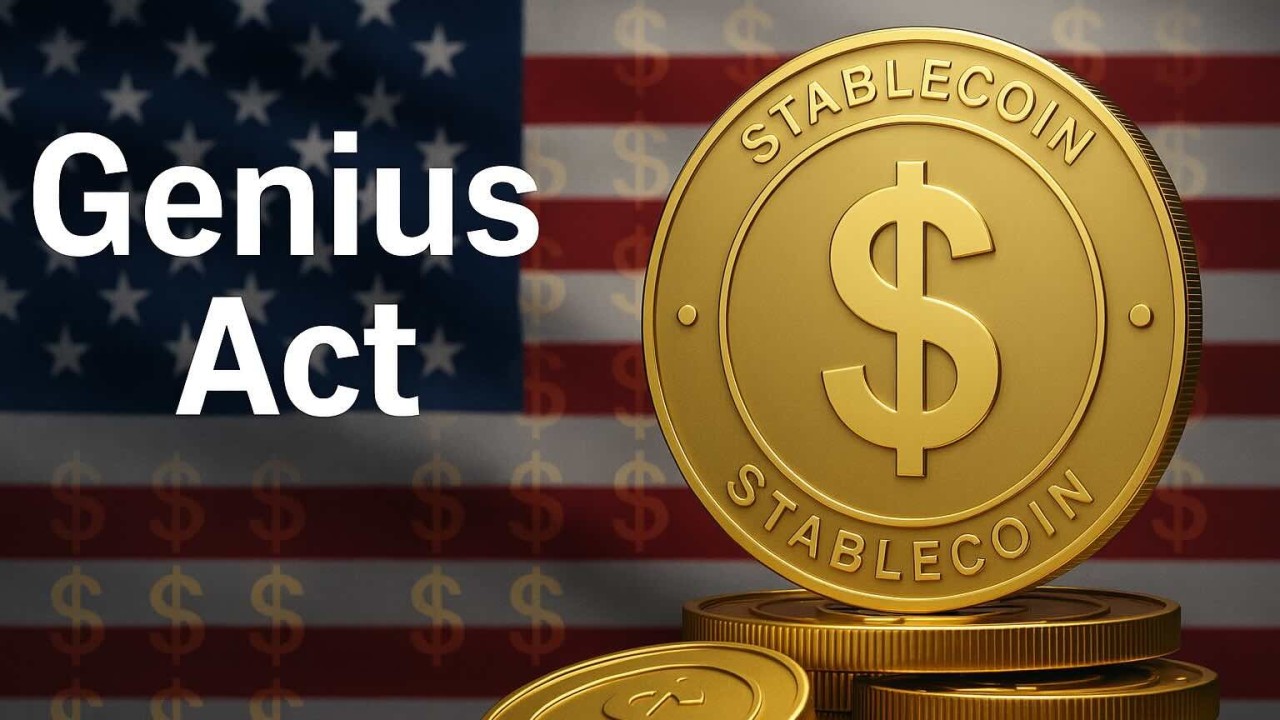The United States has taken a historic step in shaping the future of digital assets with the passage of the GENIUS Act (Guiding and Establishing National Innovation for U.S. Stablecoins Act). Signed into law on July 18, 2025, by President Donald Trump, this legislation introduces the country’s first comprehensive framework for stablecoins—digital tokens pegged to the value of the U.S. dollar or other safe assets. The move marks a significant milestone, aiming to balance innovation, consumer protection, and financial stability in the fast-growing crypto industry.
Stablecoins are key in crypto these days. People use them for payments, trading, and to tie together old and new finance. But the U.S. hasn’t had clear federal rules for them, which has caused confusion and worries about money safety, illegal stuff, and protecting users.The GENIUS Act tackles these issues by setting rules for who can make stablecoins, how they should be backed, and what protections are needed.
How the Industry and Market are Reacting
It looks like the GENIUS Act is getting a thumbs-up from the crypto and fintech people, mostly because it makes things clearer. Big stablecoin companies like Tether and Circle will probably follow U.S. rules now. Banks and new fintech firms are also checking out how they can use stablecoins in their payment systems. But the banking scene is buzzing about the law. Some traditional banks are worried that stablecoins might take money away from their savings accounts. Others think that stopping interest on stablecoins could hurt new DeFi ideas. Regulators worldwide are watching this law closely. Some are concerned that if dollar-backed stablecoins get popular, it could weaken their own currencies and give the U.S. more say in global finance.
Global Changes
If the GENIUS Act passes, the U.S. could lead the way in setting digital asset rules. Because the dollar is the world’s main reserve money, good rules for dollar-backed stablecoins could make them more common for global trade, payments, and online banking.Other countries would likely see this and think about making their own stablecoin laws, which could help us create some common international rules.
Conclusion
The GENIUS Act might change how we think about money and crypto in the U.S. It makes the rules clearer for stablecoins—like how they’re created, secured, and how users are protected. This might get more people to trust stablecoins and could lead to new things in digital finance.Some problems still exist, like disagreement between banks and the need for countries to work together. Still, this act is a brave move toward bringing cryptocurrencies into our current financial system. It proves the U.S. is trying to stay innovative with digital money and remain a leader in the digital finance world.










